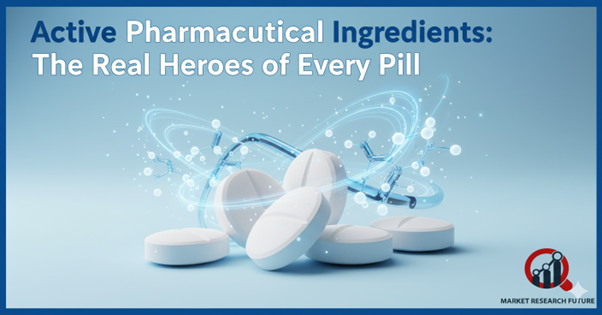Active Pharmaceutical Ingredients: The Real Heroes of Every Pill

What Are APIs? Understanding the Core of Medicine
The Active Pharmaceutical Ingredient (API) in every pill, capsule, or syrup that heals the body is a powerful secret. APIs are the living things that make a medicine work. They are the things that fight infection, ease pain, or bring the body back into balance.
APIs do the actual work of treatment, but they don't do it alone. Excipients are inactive ingredients that give medicines their shape, stability, and taste. These excipients are like supporting characters that help the API do its job well. They work together to make the balanced mix that makes sure medicines are delivered safely and effectively.
Think of a medicine as an orchestra. The API is the main instrument, and the excipients are the harmony that makes the performance work.
The Science of Combination: Why a Pill Is More Than Just Its API
A pill isn't just a shape made from the active ingredient; it's a very specific mix of science and chemistry. Binders, fillers, and coatings are examples of excipients that help the medicine keep its shape, dissolve correctly, and deliver the right amount to the body.
APIs could break down, lose their strength, or become hard to swallow without excipients. These extra ingredients make the final product more stable, control how quickly it comes out, and even make it taste better or look better. The quality, safety, and effectiveness of every medicine that a patient gets depend on how well the APIs and excipients work together.
How APIs Get Approved: Regulatory Precision
Before a drug can be sold, its API has to go through a lot of testing and approval. The U.S. Food and Drug Administration (FDA), the European Medicines Agency (EMA), and other national bodies make sure that every API meets global standards for safety, quality, and effectiveness.
Manufacturers must give detailed information about how an API is made, cleaned, and tested. Every batch is still carefully checked for quality and audited after it is approved. The manufacturer could be suspended or lose their license to make the product if there are any problems, like contamination, improper storage, or differences in potency.
This strict process makes sure that the medicines we take are safe, work, and are always available.
The Problems with Making APIs
The API industry is one of the most regulated and complicated parts of healthcare, even though it makes a lot of money. Making APIs requires accuracy, cleanliness, and creativity. A small mistake in the formulation or contamination during production can have serious effects on both the maker and the buyer.
Some of the Most Important Problems that are shaping the API Landscape are:
- Strict hygiene rules: Every unit must stay clean and free of germs. The product's integrity can be ruined by even a small amount of moisture, dust, or other foreign material.
- Managing raw materials: APIs are affected by things like temperature, humidity, and light. So, it's very important to keep the same conditions during production and storage.
- Continuous innovation: R&D teams are always working on new APIs that can help with new health problems, diseases that come from lifestyle choices, and pathogens that change over time. The lessons learned from global health crises have made it even more important to be proactive about innovation.
- Quality assurance: Before a product leaves the factory, it is put through a number of tests to make sure it is safe and stable and meets therapeutic and environmental standards.
- Regulatory adaptation: As global rules change, businesses must always follow new rules about safety, the environment, and ethics.
The Move Toward Working Together Globally
In the last few years, the pharmaceutical industry has started to work together across borders and hire people from other countries. To save money and make sure the quality stays the same, many companies now get APIs from specialized global producers. This way, drug companies can focus on coming up with new ideas, making drugs, and getting them to people, while relying on trusted partners to make the raw materials.
These kinds of partnerships also help people share information, make technology easier to move around, and set global standards. The outcome is a more connected, efficient, and resilient pharmaceutical ecosystem that can handle both current and future healthcare problems.
Innovation: The API Industry's Heartbeat
As of 2025, the API industry is going through a technological rebirth. New discoveries in biotechnology, artificial intelligence, and sustainable chemistry are changing the way APIs are found and made.
Businesses are moving toward greener ways of making things, which means less waste and using solvents that are good for the environment. Automation and digital monitoring systems make sure that every step, from synthesis to packaging, is more accurate. Also, biopharmaceutical APIs made from living cells are becoming more popular because they are very accurate and work well to treat complicated diseases like cancer and autoimmune disorders.
These new developments are raising the bar for making medicines, making the processes safer, cleaner, and more efficient.
Final Thoughts
The Active Pharmaceutical Ingredient is the first step in turning a lab formula into a pill that can save lives. APIs are more than just chemical compounds; they are the building blocks of modern medicine and the link between science and healing.
APIs will keep changing as the world moves toward personalized healthcare, sustainable production, and advanced therapies. This will lead to new ideas and better health for everyone. Every dose taken is the result of years of research, precision, and passion to make health available to everyone.